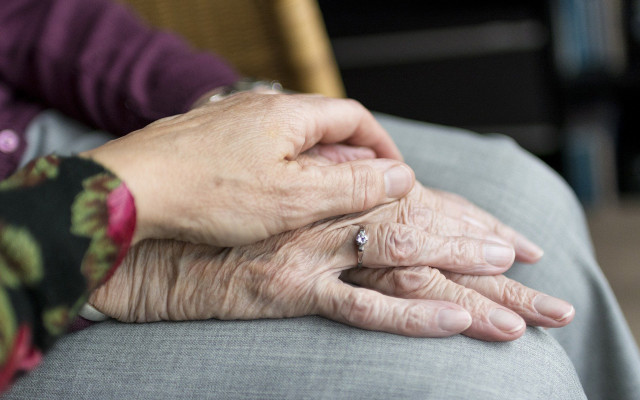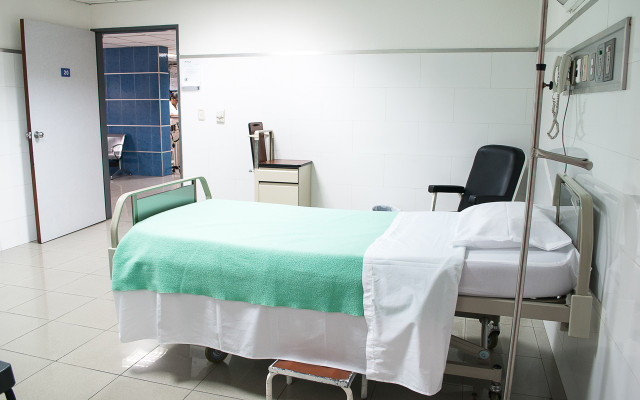No school, no trips, no more public events and much more on the way: The novel coronavirus is paralysing America and forcing us all to make sacrifices. The majority of people seems to accept this. Those who are still bitching about the constraints put on public life should now finally come to grips with one simple fact: This is not about you.
The majority of our readers (as well as employees) are under the age of 50. This means they don’t necessarily belong to the most at-risk group for serious illness from coronavirus. If you – like the author – belong to this majority and have no previous illnesses: Congratulations. There’s a good chance you’ll survive Covid-19 without experiencing any major symptoms at all. However, this is not about you.
We Need to Think Beyond Ourselves
Our standard reflex as Americans – or perhaps simply as human beings – in times of crisis seems to be to ask ourselves: How will this affect me? In most cases the answer will be “it won’t”, and then we tend to take neither the crisis nor the measures to contain it all too seriously. For perhaps the very first time in a crisis, we currently have to really think beyond ourselves and our immediate surroundings.

Because even if you really do not know anyone at all (which is highly unlikely) over the age of 50 or who has pre-existing conditions such as asthma, diabetes, cancer or heart problems: These people do exist and you now carry some responsibility for their survival.
Simply washing our hands frequently and following proper personal hygiene doesn’t cut it. Nowadays, it is just as important to keep your distance, practice social distancing and stay away from (even small) public events.
Yes, that means you will have to make sacrifices – however inconvenient that may be. All of us are now morally obliged to limit direct personal contact wherever possible, to avoid crowds of all sizes, to postpone trips and to cancel plans.
Read on: Coronavirus: 10 Tips on How to Make Best Use of Your Time at Home
Nobody is Robbing You of Your Freedom
Just a few days ago the author read the following in a group text planning a gathering of friends from various locations: “I am not willing to give up my social life now just to avoid the possibility of getting infected.”
It’s St. Patrick’s Day on March 17th. The majority of celebrations took place in bars and pubs across the country the weekend prior. Well after the government’s request that Americans avoid large crowds and practice caution in public, many didn’t hesitate and proceeded to enjoy the day celebrating in crowded bars nonetheless.
A friend who set out early on the weekend of St. Patrick’s day parties refused to cancel plans after buying an expensive ticket to an exclusive all-day bar event: “If I get it, I’m sure it will have been worth it.” Another friend believed that it would be enough if a relative with bad asthma now “takes good care of himself”.



Once again, this isn’t about you. You need to get past your “they’re trying to take something from me” mentality. Nobody’s wants to take anything away from us. The measures the United States government is currently taking to restrict public life are not directed against us. Those who are imposing these restrictions are not people we need to fight. “They” are not to blame that we have to cancel meetings and jobs and vacations. Nor is it “their” fault if we now worry about our income because we take unpaid leave to look after children at home – as painful as that may be.
“They” are just doing everything they can to try and ensure our health system’s ability to efficiently treat weaker patients than yourselves by slowing the spread of the coronavirus.
You are Responsible for the Survival of Others



It’s not about you. Given the possibility (or even probability) that millions of Americans will at some point need intensive medical care due to the coronavirus, it is essential that we do everything we can to slow down the spread now. Our health care system simply cannot handle millions of patients who need respirators and other complex medical treatment all at once. And this scenario doesn’t even take into account patients who need treatment for something other than the coronavirus.
It’s not about you. It’s about people who will need urgent medical treatment and who, at worst, won’t be able get it because of overcrowded hospitals. It’s about people who may die because there are not enough ventilators, beds, medicine and staff. This is not fiction, it’s already happening in Italy. It’s about people who might have a chance of survival if we as a society manage to flatten the curve of new infections.
In an impressive simulation, the Washington Post shows the effects of human behavior on the spread of the virus. Even though the simulations, as the author himself says, “vastly oversimplify” the real situation, they give a clear indication: The more people that adhere to “social distancing” measures, the slower the virus spreads.
Again, it’s not about you. It’s not about your social life, your hobbies, your job, not even your livelihood, as tough as that may be. It’s plain and simple about other people’s survival – and ultimately about what kind of society we want to live in. This may sounds very old-fashioned, but: Do we want to live in a society of self-centered individualism where people only think of themselves and their immediate surroundings, or do we prefer one in which we show consideration and compassion for each other?
This article was translated from German to English by Evan Binford. You can view the original here: Coronavirus: Seht endlich ein, dass es nicht um euch geht.
Important Information regarding Health-related Topics.
** Links to retailers marked with ** or underlined orange are partially partner links: If you buy here, you actively support Utopia.org, because we will receive a small part of the sales proceeds. More info.Do you like this post?






